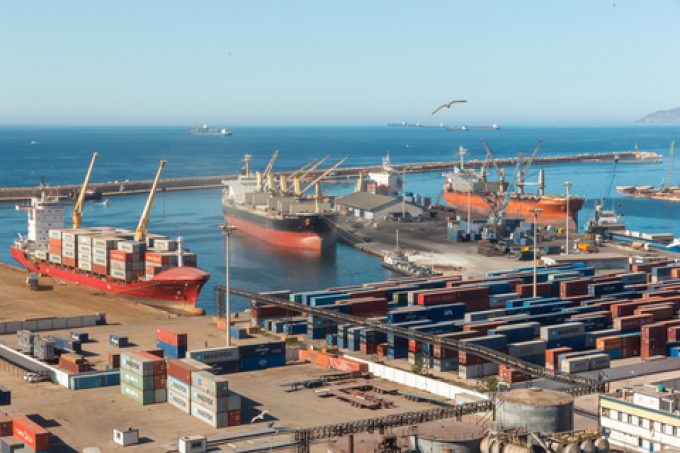Liners add capacity to Asia-ECSA as ocean rates hit 18-month high
With Asia-South America ocean freight rates at an 18-month high of around $4,350 per 40ft, ...

Restrictions in Algeria on imports from Morocco, including containers transhipped over the hub of Tanger and into Algeria’s gateways, have seen carrier schedule adjustments lead to new surcharges being levied.
Tensions between Morocco and Algeria have simmered for years, largely over the former’s occupation of Western Sahara, and flared up in 2021 over the deaths of three Algerian trucks drivers in a rocket attack, after which president Abdelmadjid Tebboune ordered all Algerian companies to terminate contracts with their Moroccan counterparts.
Last month, Algeria’s Professional Association of Banks and Financial Institutions (ABEF) announced it was prohibiting Algerian banks from providing financial services to any businesses whose goods had transited Morocco’s ports
The restrictions particularly hit Maersk and CMA CGM, which previously had several services hubbing at Tanger, and have been forced to introduce changes to several Algerian services.
Shortly after the ABEF announcement, Kuhne + Nagel warned: “Analysts believe the Algerian decision will negatively affect its economy, since choosing to pass through ports other than Moroccan [ones] will increase the cost of transportation. This will eventually impact the prices of various goods in the Algerian markets.”
This week CMA CGM said: “New regulatory constraints applicable to cargo bound for Algeria [that do not have] any possibility to tranship or transit cargo in Morocco. This situation is unfortunately resulting in extra costs.”
The French carrier has since placed a €250 per teu surcharge on cargo from all West African ports to Algeria, which is served by the six main ports of Algiers, Bejaia, Skikda, Annaba, Ghazaouet and Oran, a market which The Loadstar estimates to be around 2.5m-3m teu per year.
As result of the new restrictions, CMA CGM’s AGAPOME service, which was previously one loop, with a port rotation of Tangier-Algeciras-Vigo-Leixoes-Setubal-Tanger-Algeciras-Ghazaouet, has now been split into two loops, with the Atlantic ports of Spain and Portugal served from Tanger, and a new dedicated Algeciras-Ghazaouet loop launched.
Likewise, its ALGOM service, which was also one string, calling Livorno-Genoa-Marseilles Fos-Valencia-Tanger-Oran-Mostaganem, has been separated into five loops, with a variety of Algerian ports now served from Algeciras, Valencia, Barcelona, Marseilles and Malta.
Maersk has also opted to use Malta as a substitute for Tanger on its L67 service, which runs a shuttle into Algiers. Meanwhile, its L66 service, which previously called at Tanger-Barcelona-Bejaia, has replaced Tanger with calls at Valencia, Fos and La Spezia.
A spokesperson for Tanger Med told The Loadstar the port handled 8.6m teu last year, representing an above-average growth of 13% over 2022, appearing to shrug off concerns about losing Algerian traffic.
“We can confirm statistically that Algerian cargo that was transhipped in Tanger Med in 2023 represents less than 0.6% of our traffic,” they said. This would amount to around 110,000 teu.
However, there is also a geopolitical aspect to the issue.
Iran has been supplying Polisario – a Sahrawi nationalist organisation whose main goal is the independence of Western Sahara from Moroccan occupation – with attack drones over the past 18 months. CEO of Vespucci Maritime Lars Jensen pointed out that this “de-facto places Iranian-supplied drones along the access to the Strait of Gibraltar”.
This potentially could add further stress to carriers transiting the Strait of Gibraltar to avoid attacks in the Red Sea. However, these drones are not currently being used against commercial shipping.
In December, Reuters reported that Iran had warned that the Mediterranean Sea could be closed if the United States and its allies continued to commit “crimes” in Gaza.
“They shall soon await the closure of the Mediterranean Sea, (the Strait of) Gibraltar and other waterways,” Iranian Media Tasnim quoted the coordinating commander of the Iranian Revolutionary Guards, Brigadier General Mohammad Reza Naqdi, as saying.
Comment on this article